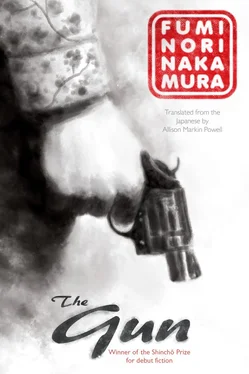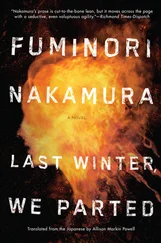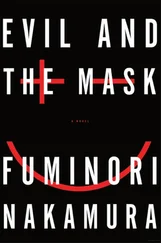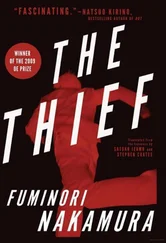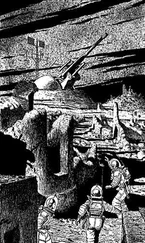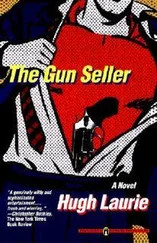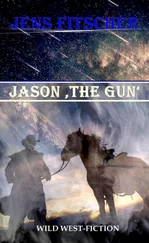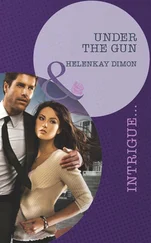I sat by myself in a chair in the smoking area inside the unfamiliar literature department building. Bored, I took the leather pouch out of my bag. There was no one around, maybe because lectures were in session. I was tempted to pull the gun from the pouch, but of course I restrained myself from doing so. I lit a cigarette, and thought about what to do next. I considered calling that girl I’d recently had sex with, but it was more trouble than it was worth.
Just then, I thought about shooting the gun. This wasn’t the first time it had occurred to me, but lately I had been thinking about it frequently. The act of firing the gun had always existed within me, and now I realized that, as its presence intensified, my efforts to keep it under control were diminishing. Up until now, I had amused myself with simply the prospect of shooting the gun, but gradually it had taken on a tinge of reality, almost as if I had caused it to proliferate, and it was starting to worry me. Previously, the act of firing the gun had belonged to the potentially distant and uncertain future. Yet, since I had started carrying it around with me, I had the feeling that it was only a question of time. The fact of the matter was that I could use the gun at any time, and it loomed over me as a practical reality that the possibility mounted proportionately with each day. The sight of the gun, the feel of it, evoked a concrete image in my mind of me firing the gun, as if it threatened to break out from within the narrow confines of my fixed imagination, seeking a connection with an actual, physical sensation. The fact that someday I would shoot the gun — I had come to believe that this was an absolute certainty. Being in possession of the gun meant that each day was filled with the potential experience of actually discharging it, and without a doubt there would come a day when I would want to do so — that is to say, I was sure I would fire it. That conviction brought the once-distant future closer, almost as if it had taken on a life of its own, and would compel the first shot to happen. This clearly defined future outcome wanted me to make it materialize, and soon. This demand was gradually intensifying, to the point where it was making me deranged — it had a hold on me, and wouldn’t let go. I felt the necessity of it — that I needed to fire it, at least once. Otherwise, this same internal argument would go on forever, and I thought I might just lose my mind.
I had the feeling that firing the gun had begun to shift from a conscious choice to a foregone conclusion without my noticing it. The progression made me a little anxious, and I attempted to think through it carefully, but it made my head hurt and I abandoned the idea. I felt like, regardless of what I came up with, it was already determined anyway. So I decided that it didn’t really matter.
My cell phone rang: it was Yuko Yoshikawa. Feeling as though I had been saved, I answered in a cheerful voice. She told me that she had been asleep, going so far as to yawn loudly, but I didn’t believe her. In my mind, she had been with another guy. I thought about it for a moment, then said that it was no big deal, I had some time and just wondered if she wanted to get lunch together. She said that, now that she was awake, she would make her way to campus. She added that she would call when she got here, and then she hung up.
I figured I might as well find a way to kill time while I waited for her. After running through various ideas, I thought I would go to the library and look at newspapers. The news on television was all about what was going on with the U.S. and Afghanistan, and information had dropped off about the dead man who had been found at the Arakawa River. I thought there might be something about it in the newspapers, and that I would be able to peruse several days’ worth at the library. And yet, I was a little surprised that this had only first occurred to me as a way of killing time. This ought to have been something I was focused on all along. I had realized as much back when I was in the bathroom at that girl’s apartment, and you would have thought that I would be more meticulous about it. For a while I sat there in the smoking area, vacant and motionless. The idea that I might actually be too distracted by the gun was slightly terrifying. I was finely attuned to the gun itself, but not so much to the environment around me. I took notice of a policeman coming my way, but I hadn’t thought to make any advance preparations or take preliminary measures. In a panic, I practically ran to the library. Even if the police had shifted their investigation and ruled the Arakawa death a suicide, there was no doubt they would still be trying to determine the whereabouts of the gun. And once the investigation moved in that direction, they would probably start to scrutinize all kinds of people.
I put in a call to Yuko Yoshikawa to push back our plans by an hour, and she said okay. I scanned as many newspapers as I could, focusing on the smaller items while still paying attention to the big stories. The vast majority of the articles were completely irrelevant to me. Whether the Americans had dropped a bomb somewhere in Afghanistan, or whether their strategy would succeed — these kinds of things had nothing to do with me right now. What Japan’s reaction would be, or whether Japan would become entangled with it — such questions did not interest me at the moment either. A kid had died after being bullied, and his parents had sued the school and the bully. There was a fire somewhere, and it was difficult to say whether it had been arson or an accident. There was a festival. Funds were embezzled, and the culprit had fled. There was a scientific discovery. Two trucks had collided. Someone had been run over. An intellectual whose name I didn’t recognize gave his opinion about the United States, offering advice to the Japanese government. Politicians quarreled, talking earnestly about something or other. Two entertainers died. It seemed like the information I was looking for was not to be found in any of these newspapers. I continued to leaf through various broadsheets, my eyes intently devouring the words. Each day had been filled with news. Yet it seemed the dead man by the Arakawa River did not merit a mention. This project would take time. I kind of regretted not asking Yuko Yoshikawa for two hours instead of one. But I realized that if I did this every day, it wouldn’t take as long to stay on top of it. I began to tire from the effort of concentrating, half dragging myself through the task as I continued to scan the papers.
The article occupied more space than I would have imagined. It gave me a little shock, literally seeming to suddenly leap out at me. I had gotten as far as the newspapers from the 22nd when there it was — the man who had been found near the Arakawa had been identified. His name was Keiichiro Ogiwara, he was 51 years old and had been the manager of an adult entertainment club — everything about him was written right there. Aware that my heart was starting to race, I read through the rest of the article. I could tell that the police were still viewing it as a homicide. The article implied that the club where he had worked was run by people who had ties with organized crime, and went on to suppose that there may have been some kind of financial trouble. In a different paper from the same day, there was another article that said basically the same thing. The only difference was this one said that it wasn’t an adult entertainment club; rather, it was a “fashion-health” massage parlor, and one with definite mob ties, that trafficked in prostitution. However, the story hadn’t been picked up by any other newspapers, and even in the two where it had run, there were no more articles about it from after that day. Relieved — for the time being, at least — I relocated to the smoking area and lit a cigarette. The cigarette tasted better than usual, and I had to laugh at myself for getting so worked up again.
Читать дальше
